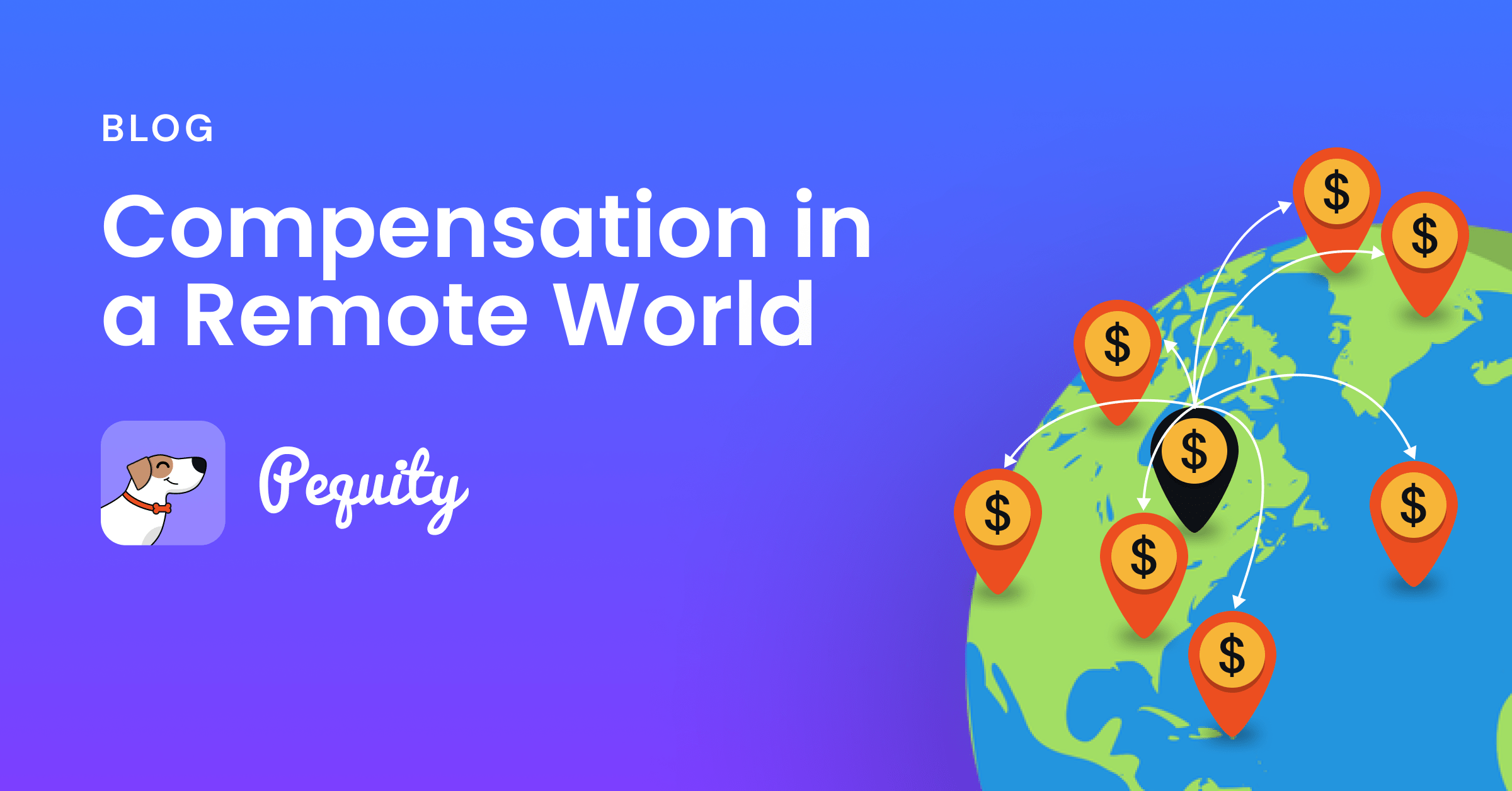By Kaitlyn Knopp, Co-Founder & CEO, Pequity
The pandemic’s shift to remote work is upending many companies’ compensation structures, and HR leaders have big decisions to make about how to adapt to the new landscape of compensation. There are a few big questions that companies need to answer in the new world of remote work:
- If your employees are voluntarily relocating from higher-cost cities to lower-cost places, should they expect to take a pay cut?
- How will you handle their reactions (positive or negative)?
- How can your company maintain competitive compensation while also respecting the bottom line?
- How can you strike the right balance between unfairly overpaying people and possibly losing top talent?
- How can you maintain pay equity in the new world of remote work?
I spoke about this topic at SHRM 2021 recently, as remote work and compensation are top of mind for so many organizations right now. There’s so much volatility in the market right now and no one knows yet what the “new normal” of compensation is going to be.
Let’s take a closer look at a few big trends that are driving compensation in the world of remote work, and some suggested insights for employers.
Remote Work is Table Stakes Now
The pandemic showed millions of people that they don’t have to be in an office every day to be productive. A lot of them don’t want to go back. Along with working from home, millions of people have relocated to different states, sometimes with lower costs of living.
Even though some major companies are still making announcements about an eventual return to the office, which has now been delayed by the Delta variant, I believe that remote work is table stakes now for companies that want to be taken seriously by top talent. If your company does not allow remote work, your best people are likely to get headhunted by companies that are more flexible.
What does this mean for your compensation program?
Employees want to be treated fairly. They also don’t want to take a pay cut just because of where they live. They want to know why are their personal decisions about where to live relevant to how much they get paid? I always ask, if an employee decides to move to a more expensive home, does that mean they deserve a pay raise? If an employee gets a roommate, does that mean they deserve to take a pay cut? Of course not!
Instead of worrying about whether your organization is paying “too much” based on your remote employees’ cost of living, calibrate your pay structure based on local cost of labor. Cost of labor, not cost of living, is a better guide for compensation decisions.
Differentiate Pay By Performance – Not “Same Work, Different Desk”
Companies still want to differentiate pay based on performance, as they should. If remote employees are still doing the same work, but at a different desk (in a lower-cost part of the country), that doesn’t mean they should take a pay cut. Talented employees don’t want to be paid less or treated unfairly just because they work at a different desk, while doing the same work.
One of the complexities that a lot of larger corporations were betting on is that some people might have to stop working remotely and go back to a set location. Will people want to move back to headquarters in New York or San Francisco if they’re already living and working remotely in Texas or Florida?
What if there are conversations where a manager says , “I need you in the office on the West Coast?” What happens then? Will some companies offer a pay increase to compensate people for giving up their remote work flexibility? Will some top talent just quit, rather than give up the benefits of remote work?
No one knows the answer to this yet, and it depends on the company and the talent. But as an organization, if you’re expecting people to give up remote work and be tied to a specific office in a specific city, you’re running the risk of either overpaying people (who are living in a lower-cost city while getting paid a lot more than the local cost of labor), or risk losing a great talent.
The Future: Disbursed Talent, Higher Compensation
There’s still so much uncertainty in the market and no one knows exactly how this is all going to shake out. But I think that if we see more companies going remote, as people get disbursed to different cities around the country, we’re going to see a general increase in compensation.
Most companies are not going to risk losing talent by asking them to take a paycut for working remote. There’s such strong demand for talent right now, that employees have more power than ever; people can demand remote flexibility and the stability of their “high-cost city” paycheck.
Organizations are not going to go in and do artificial or arbitrary adjustments to people’s salaries based on where they choose to live. It feels unfair to people to say, “you’re doing the same work, but you have to take a pay cut because you’re sitting at a different desk.”
Instead of looking at employees’ cost of living as part of the equation for determining fair pay, companies are going to need to get more specific about differentiating pay based on experience, role, level, and any other factors that are relevant to performance. We might see a future where location is not even considered as part of the pay equity test.
These are exciting times for HR leaders and hiring managers. The rules of the compensation game are changing fast before our eyes, but the future of compensation in a remote world is shaping up to be more flexible, more equitable, and hopefully will create more value for employees and organizations.

Comments